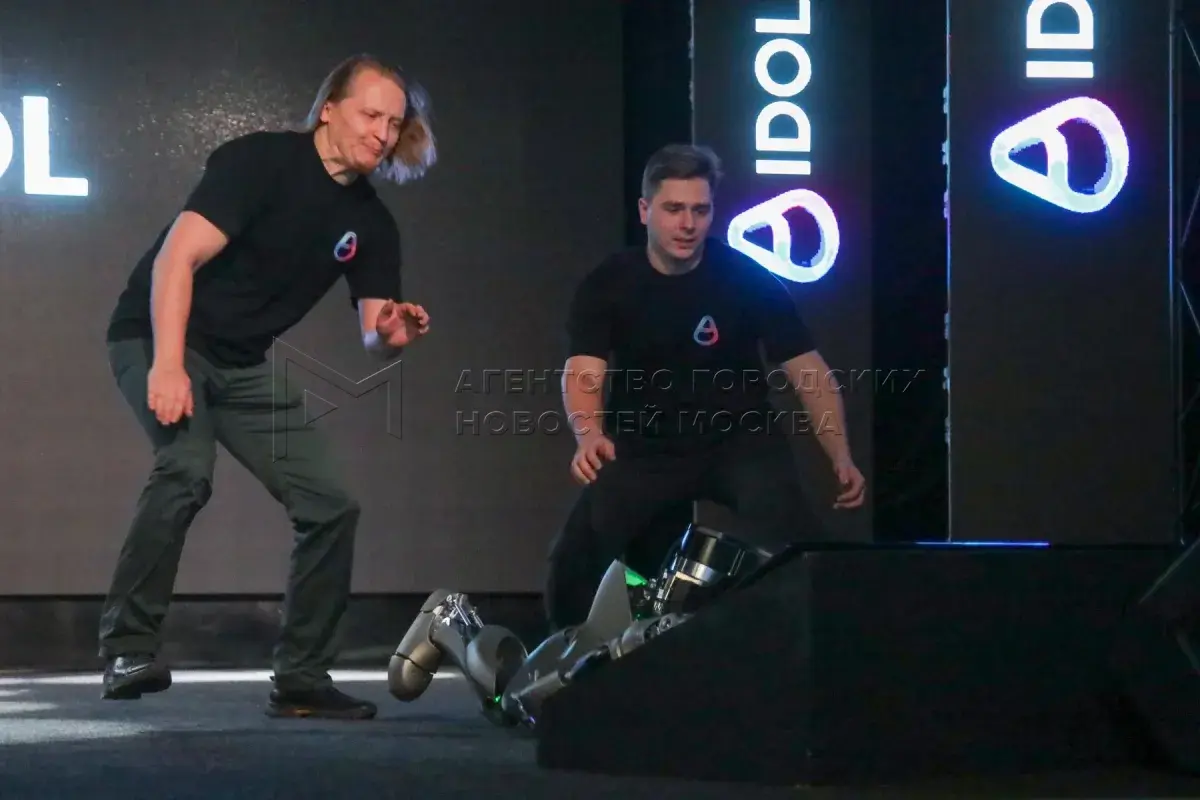Copyright Newsweek

Russia’s first humanoid robot with artificial intelligence fell on stage during its official debut at a technology event in Moscow on November 10, prompting staff to cover the machine from public view while attempting to fix the malfunction. The robot, named AIdol, was introduced by developers as an advanced example of anthropomorphic robotics built largely from domestic components. As the robot was being led on stage by two staff members to the soundtrack from the film Rocky, it lost balance and fell, leaving several pieces behind on the stage. Video footage of the incident, shared by independent Russian outlets, shows staff rushing to hide the robot behind a screen as it was being dragged off the floor. Why It Matters The unveiling of AIdol marks Russia’s attempt to join the global race to develop human-like robots powered by AI. Led by Vladimir Vitukhin, CEO of the Russian robotics firm Idol, the company says the robot integrates movement, object manipulation, and human-like interaction through embodied artificial intelligence. What To Know The fall was attributed to calibration issues, and the company maintains that the incident occurred during the robot’s ongoing test phase. “I hope that this mistake will turn into an experience,” Vitukhin said. Although the launch was meant to showcase advances in domestic AI and robotics, critics on Russian social media and tech forums instead focused on the robot’s instability and the decision to unveil an unfinished prototype. The video has been widely shared online, with many questioning whether Russia’s robotics sector is ready to compete internationally. The developer dismissed the criticism, noting that AIdol is powered by a 48-volt battery that provides up to six hours of continuous operation and is composed of 77 percent Russian-made components—a figure the company aims to increase to 93 percent in future production. They added that the robot is equipped with 19 servomotors, allowing it to display more than a dozen basic emotions and hundreds of micro-expressions. Its silicone skin is engineered to replicate human facial expressions with varying degrees of firmness. “The robot can smile, think, and be surprised—just like a person,” Vitukhin said during the presentation. What People Are Saying Vladimir Vitukhin, CEO of Idol, said during Wednesday’s presentation: "This is real-time learning, when a good mistake turns into knowledge, and a bad mistake turns into experience". What Happens Next The robot’s developers temporarily removed the machine from public view while engineers examined its balance systems and control software. They said the robot remains in the testing phase.



